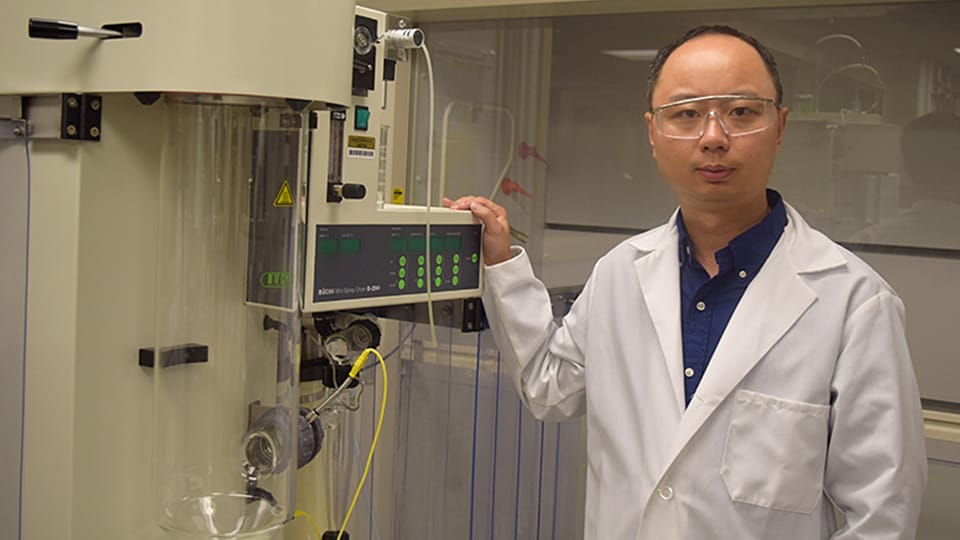Purdue professor lands $2.4M grant for lung infection research
Subscriber Benefit
As a subscriber you can listen to articles at work, in the car, or while you work out. Subscribe Now
A Purdue University associate professor has received a $2.4 million grant from the National Institutes of Health to fight lung infections resistant to antimicrobial drugs.
Qi “Tony” Zhou leads a team of researchers from Australia, Thailand and the United States in developing inhalation treatments for lung infections. His research in antimicrobial resistance has yielded two U.S. patents, four patent applications and more than 70 publications in peer-reviewed journals, a Monday university news release said.
“We are providing a promising option to fight the global crisis of antimicrobial resistance,” Zhou said in the news release. “The successful development of our invention could save tens of thousands of lives from a variety of deadly lung infections, including cystic fibrosis and ventilator-assisted pneumonia.”
Zhou said oral or intravenous antibiotic drugs are often ineffective in treating lung infections because of limited drug exposure where the infection is and because of systemic toxicity.
“This makes lung infections caused by resistant bacteria extremely difficult to treat, reflected by the fact that lung infections are the fourth leading cause of death in the world,” said Zhou, a faculty member of the Purdue Institute for Drug Discovery and the Purdue Institute of Inflammation, Immunology and Infectious Disease.
Zhou’s inhalation therapeutics help antibiotics directly reach the infection site in the lungs to better kill bacteria, and they can avoid systemic toxicity because fewer drugs are absorbed into the bloodstream, the news release said.
Zhou has now received six federal grants totaling $10 million, including three in the past eight years to support the inhalation therapeutics research.
